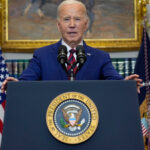
Published June 8, 2022
As COVID-19 circled and recircled the globe throughout 2020 and 2021, one territory remained stubbornly impervious to its assaults. It was not a backwater rural nation protected by low population density. Nor was it a remote island like Fiji able to insulate itself from the outside world. Surprisingly, it was one of the most densely populated metropolises on earth and one that shares a border (and a central government) with the country where the virus originated. For nearly two years, Hong Kong served as one of the greatest COVID success stories, able to maintain a zero-COVID strategy long after many other countries had given it up and without resorting to measures as shocking and draconian as mainland China. By February, only 213 people had died of COVID in a city the size of New York City. That changed calamitously in the month that followed.
Once the Omicron variant breached Hong Kong’s public health defenses, COVID spread like lightning, overwhelming hospitals and killing 7,000 in March alone. Admittedly, this was less than half the death toll in New York City in April 2020, but given Omicron’s diminished severity and a whole year to build up vaccination immunity, it represented a shocking failure of policy. The point of Hong Kong’s strategy, after all, had been to keep the virus at bay long enough to vaccinate all vulnerable residents, but by the time the Omicron surge hit, only a quarter of residents over the age of 80 had received two vaccine doses. What went wrong?
A thoughtful analysis in The New Yorker sheds light not merely on Hong Kong’s tragedy but on the pervasive dilemma facing our risk-averse modern societies. According to doctors in Hong Kong, the problem was simple: Vaccine uptake was very low because actual risks often bear little relation to perceived risks. We perceive risks based on firsthand (or at least second- or thirdhand) experience. If you know a friend or family member who died of breast or colon cancer, you’re more likely to schedule a preemptive screening. In Hong Kong, virtually no one knew anyone who’d even had COVID, much less died from it. Simply by virtue of the law of large numbers, though, quite a number knew of someone who had had (or at least thought they’d had) an adverse vaccine reaction. The result was that many residents, even among the elderly, decided that the vaccine was a greater threat to their health than the virus.
Hong Kong’s zero-COVID failure, recently replayed in nearby Shanghai, is but one example of a more significant problem facing our societies, in which all levels of authority—from parents to teachers to prime ministers—have imbibed the idea that their responsibility is above all to shelter those under their care from any danger or risk. This conviction manifests itself in everything from outdoor mask mandates to the proliferation of “safe spaces” on college campuses. Too often, this “nanny state” or “helicopter parent” mentality ends up backfiring, heightening risk precisely because it fails to prepare anyone to face it. As a society, we’ve become so wrapped up in trying to prevent “micro-aggressions” that many of us have no clue about what to do in the face of real aggression.Hence the semi-hysterical hand-wringing over America’s “culture of violence” that greeted Will Smith’s slap at the Oscars, and the inability of many in the West to even rationally process Vladimir Putin’s invasion of Ukraine.
One of the foremost voices against this culture of coddling in recent years has been Jordan Peterson, who famously exhorted adults in his 12 Rules for Life, “Do not bother children when they are skateboarding.” In his new book, Beyond Order, he returns to the same theme, using the fairy tale of Sleeping Beauty to highlight the perils that lurk when parents attempt to shelter their children from every worldly threat until they reach adulthood. Just as a vaccine works by exposing the body to just enough danger to help it arm itself against greater threats, so a wise parent knows how to allow their child to experience small but real threats so they can be equipped to face the unavoidable dangers of adult life.
The task of political leaders, whom our Christian catechetical tradition often compares to fathers and mothers of their citizens, is similar. They do have a God-given responsibility for the security and health of their people. But paradoxically, this responsibility is best fulfilled by allowing their citizens some exposure to the threats of violence, tragedy, and disease. Civil authorities, after all, cannot play God—they cannot forever hold every threat at bay. At some point, the forces of fallen nature will assert themselves, and civic leaders will wish that they had trained their societies not to be safe above all else but courageous and resilient.
Brad Littlejohn, Ph.D., is a Fellow in EPPC’s Evangelicals in Civic Life Program, where his work focuses on helping public leaders understand the intellectual and historical foundations of our current breakdown of public trust, social cohesion, and sound governance. His research investigates shifting understandings of the nature of freedom and authority, and how a more full-orbed conception of freedom, rooted in the Christian tradition, can inform policy that respects both the dignity of the individual and the urgency of the common good. He also serves as President of the Davenant Institute.
Image: Anshu A, UnSplash
Brad Littlejohn, Ph.D., is a Fellow in EPPC’s Evangelicals in Civic Life Program, where his work focuses on helping public leaders understand the intellectual and historical foundations of our current breakdown of public trust, social cohesion, and sound governance. His research investigates shifting understandings of the nature of freedom and authority, and how a more full-orbed conception of freedom, rooted in the Christian tradition, can inform policy that respects both the dignity of the individual and the urgency of the common good. He also serves as President of the Davenant Institute.








